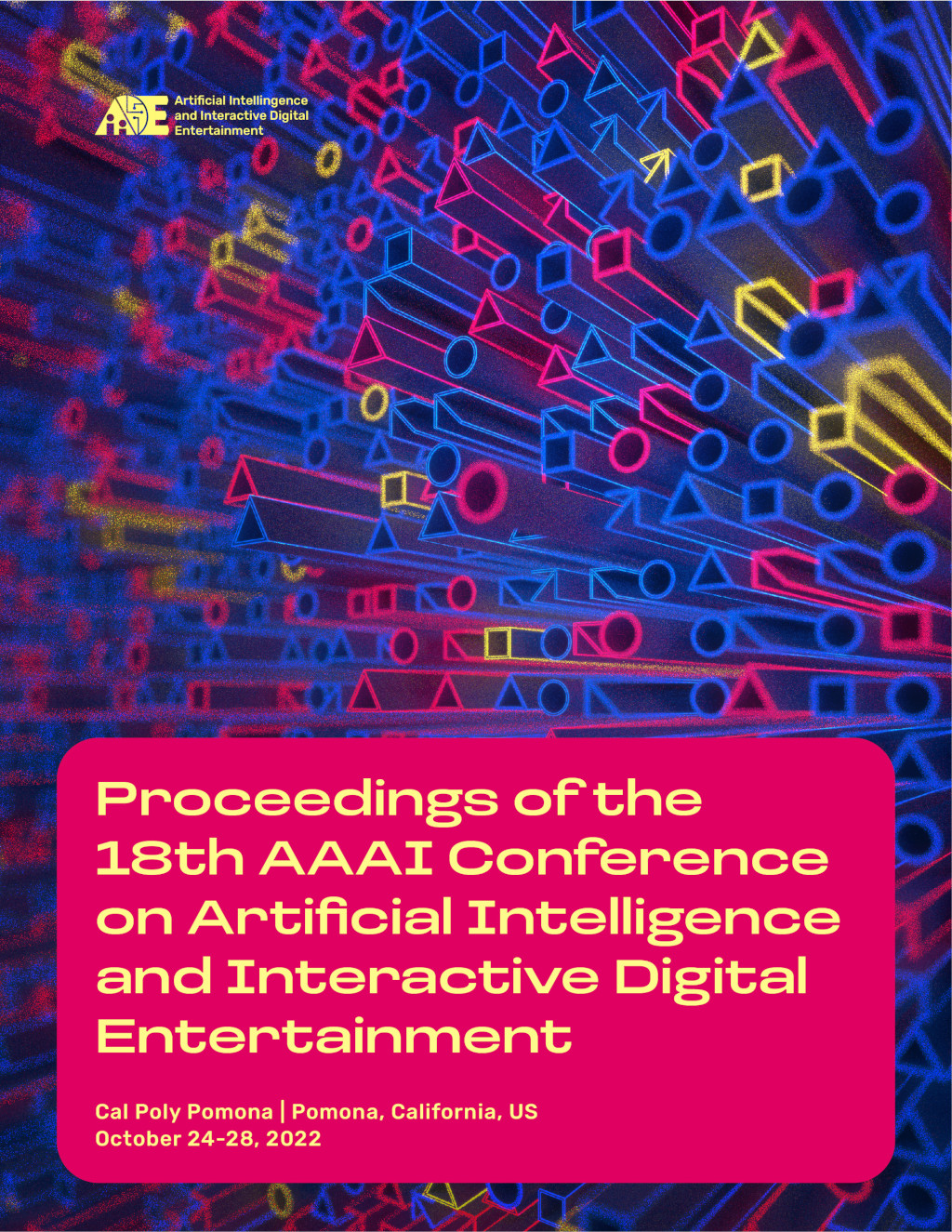Reasoning with Ontologies for Non-player Character’s Decision-Making in Games
DOI:
https://doi.org/10.1609/aiide.v18i1.21980Keywords:
Game Artificial Intelligence, Logic Programming, Prolog, Agent, Unity, Ontologies, ReasoningAbstract
In most games, the decision-making of non-player characters (NPCs) is usually constructed using variants of state machines, behaviour trees, utility-based AI or planning. These methods are relatively simple to implement, but have drawbacks in that it can be difficult to create complex non-hard-coded behaviour for many agents and to maintain the algorithms, especially when scaling up. Game designers usually think of their games with rules that closely resemble logic rules. A methodology is introduced to design both general and modular behaviour using a logic reasoner with hierarchical ontologies. This approach is combined with the well-founded semantics (WFS) to solve the problem of representation and reasoning despite the lack of NPC knowledge.Downloads
Published
2022-10-11
How to Cite
Lapeyrade, S. (2022). Reasoning with Ontologies for Non-player Character’s Decision-Making in Games. Proceedings of the AAAI Conference on Artificial Intelligence and Interactive Digital Entertainment, 18(1), 303-306. https://doi.org/10.1609/aiide.v18i1.21980
Issue
Section
Doctoral Consortium Abstracts

